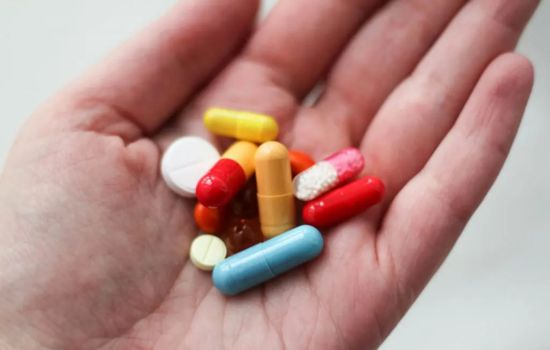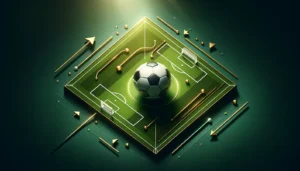There is a hidden pattern among people who recover successfully.
It has nothing to do with luck, genetics or access to expensive treatments. It is something much simpler, but tremendously powerful.
And today you are going to find out.
See also
- Radars on the Road
- The story behind your first nickname
- Guide to Apps to See at Night
- Digital Crochet Guide
- Zumba Digital: Your Class at Home
The revelation that changes everything
Dr. Martínez has been a cardiologist for 25 years. He has treated thousands of patients with similar conditions, identical medications, comparable prognoses.
But something intrigued him deeply:
Why did some patients improve dramatically while others struggled constantly?
The answer came when he began to analyze a factor that no one else considered important: adherence to treatment with millimeter precision.
His most successful patients were not necessarily the youngest, the richest, or the most educated.
They were the most organized.
The invisible epidemic that is silently killing
As you read these lines, something alarming is happening:
- 125,000 people die each year for not taking your medications correctly
- 40% of strokes they could be prevented with better adhesion
- 33% of hospitalizations they are completely avoidable
But here is the most shocking thing: most of these people believed they were taking their medications well.
Microscopic errors with gigantic consequences
Elena thought she was doing everything correctly. He took his medication ópr in the morning, as his doctor had told him.
But in the mornings it meant:
- Monday: 7:15 AM (with breakfast)
- Tuesday: 9:30 AM (already at work, without food)
- Wednesday: 6:45 AM (on an empty stomach)
- Thursday: Did you forget completely?
Result: His body never managed to stabilize blood levels of the medication.
The silent revolution on your smartphone
Did you know that the most advanced technology to save lives is already in your pocket?
I'm not talking about futuristic medical devices or experimental treatments.
I'm talking about something so accessible that your grandmother can use it without problems, but so sophisticated that it can rival hospital systems worth thousands of dollars.
The three pillars of modern digital medicine
Medisafe: Your personal pharmacist 24 hours a day
Imagine having a pharmacist who:
- Know every detail of your medical history
- He never sleeps or takes vacations
- Detect dangerous interactions before they happen
- Instantly communicate with your family if there is an emergency
That's exactly what Medisafe does.
Its artificial intelligence algorithm analyzes more than 4 million drug combinations to keep you safe. But what really makes it exceptional is its connected caregiver system.
When Maria, 74, did not confirm taking her cardiac medication, her daughter received an automatic alert within 30 minutes. That notification saved his life.
MyTherapy: The evolution of your self-care
What if you could see exactly how your medications affect your body day after day?
MyTherapy turns complex medical data into understandable visual information:
Evolution graphs that show your real progress Smart correlations between medications and symptoms
Automatic reports ready to share with your doctor Rewards system that turns treatment into a motivating game
1For the first time I understood how my medications worked together. My doctor was impressed with the data I presented to him. an ern Carmen R.
Pill Reminder: Perfection in simplicity
Sometimes the most elegant solution is the simplest.
Pill Reminder has mastered the art of making the complex accessible to all:
- Setup in 60 seconds
- Smart alerts that adapt to your routine
- Inventory tracking which prevents you from running out of medications
- Family mode to take care of your loved ones
Their philosophy is clear: if it's not easy to use, it doesn't work in real life.
The neuroscience of drug habit
Why is it so difficult to remember to take medication?
The answer lies in how our brain works.
The invisible enemy: Selective automatism
Your brain automates thousands of daily actions: walking, driving, brushing your teeth. But there is a crucial difference:
Natural actions (like eating when you're hungry) have internal biological signals. The medications they are external to our natural rhythms.
The trap of ésfalse familiarity
After a few weeks taking a medication, your brain lists it as an established routine.
Big mistake.
Without constant reinforcement, these new habits are the first to disappear when your routine changes, when you feel stressed, or simply when your mind is busy with other priorities.
How igahackan apps positively set your brain
Successful apps understand the neuroscience of habit and use it to your advantage:
Consistent external triggers: Your phone becomes the reminder your brain needs.
Immediate reward: The simple act of marking completed release dopamine.
Track progress: Viewing your streak of consecutive days activates your internal achievement system.
Social context: Sharing your progress with family creates natural accountability.
The dangerous myths you should know
Myth #1: ÎIf I feel good, I can skip doses
Reality: Many medications work preventively. Feeling good is proof that they are working, not that you no longer need them.
Myth #2: ÎApps are for seniors
Reality: 73% of millennials forget to take medications regularly. Age is not a protective factor.
Myth #3: ÎIt's just lack of discipline
Reality: It is a system design problem, not a personal one. The most disciplined people in the world use tools to be consistent.
Myth #4: ésSimple reminders are enough
Reality: A basic alarm does not consider interactions, meal timing, or effectiveness tracking. It's like using a flashlight when you need a headlight.
The transformation you didn't expect
Using technology to manage your medications does something unexpected:
It makes you the active protagonist of your health.
Change #1: From passive patient to active manager
Instead of simply taking pills, you will begin to understand how each medication contributes to your overall well-being.
Change #2: From reacting to preventing
The data you collect allows you to identify patterns and anticipate problems before they become crises.
Change #3: From isolated treatment to comprehensive health
These apps help you see connections between medications, symptoms, mood, sleep, and physical activity.
The stories that matter
Roberto, 45 years old, diabetic: Îte I used to live in constant fear of my sugar levels. Now, with MyTherapy, I can predict how I will feel based on my patterns. My endocrinologist says my controls have never been more stable. ante
Patricia, 62 years old, hypertension: ÎMedisafe detected that one of my supplements was interfering with my blood pressure medication. My pharmacist confirmed that it could have been dangerous. This app literally saved me from a serious complication. ar
Miguel, 28 years old, anxiety: 1I thought Pill Reminder was 'for seniors', but I realized I was constantly forgetting my antidepressants. Now I haven't skipped a dose for 6 months. My therapist notices the difference. anus
The future of your health begins today
We are living in the golden age of personalized health.
Predictive artificial intelligence
Soon, your app will be able to predict health problems days before symptoms appear, based on subtle patterns in your data.
Precision medicine
The algorithms will analyze your genetics, lifestyle, and drug response to optimize treatments specifically for you.
Connected health ecosystems
Your app will communicate seamlessly with your doctor, pharmacy, lab, and even your health insurance to create a fully integrated health experience.
Medical augmented reality
You will be able to point your camera at any medication and receive instant personalized information about dosage, timing and interactions.
But all this will be irrelevant if you don't take the first step today.

Conclusion
We come to the moment of truth.
During these minutes together, we've unearthed uncomfortable truths about treatment adherence, demystified medical technology, and seen how small decisions can have monumental consequences for your health.
Medisafe, MyTherapy and Pill Reminder are not just apps. They are extensions of your commitment to yourself. They are the difference between living your health reactively or taking it into your own hands proactively and intelligently.
The question is no longer whether these tools can help you.
The question is: how much is your peace of mind worth?
How much is it worth waking up every morning knowing that you are doing everything you can for your health? How much is the confidence that you are not missing any important details of your treatment worth?
Your body is working 24 hours a day to keep you alive and healthy. Isn't it time technology helped you return that favor?
The future of your health is not in the hands of destiny.
It's in yours.
And now you have all the tools to ensure that future is bright, healthy and full of possibilities. The only question that remains is: are you ready to get started?






